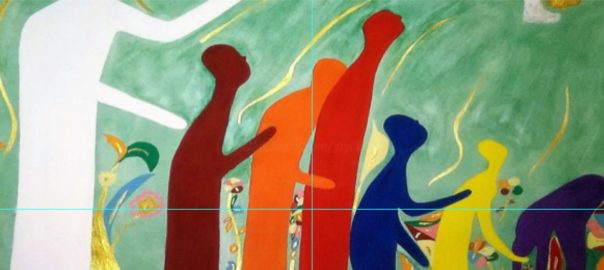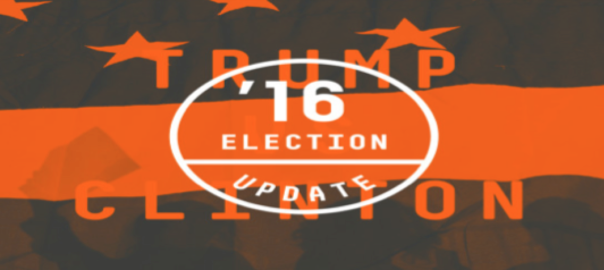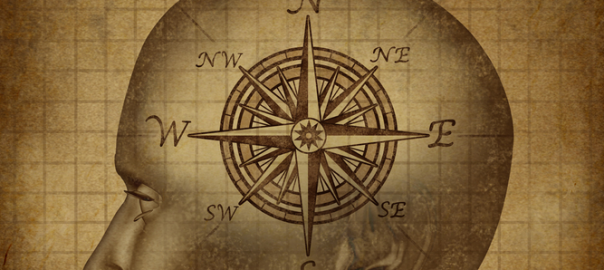Regardless of the outcome of the 2016 Presidential Election, our national experiment in virtue-based liberty is in a fragile and fraying state, with unprecedented private and public anger. Thoughtful women and men are distressed that the major parties offer two such deeply flawed candidates. Journalistic bias and agitation propaganda have replaced careful research and measured writing. Lost in all of the presidential chaos are the important local and state elections that immediately affect citizens where they live.
I offer these prayers and reflections as a cri de coeur – a cry of the heart – for divine mercy and decisive repentance and renewal in all of us. Underneath the public scandals focused on money, sex and power are deep moral and spiritual ambivalence, with various elites perverting ethical values for their own ideological agendas.
There are three insights and three prayers I invite all to consider and confess as we prepare the election and the aftermath.
Insight One: We are dehumanizing and disintegrating human identity and wholeness. When we ignore biological gender, separate sexual intimacy from marriage and fostering the next generation and reduce identity to current erotic impulses, we are not progressing past religious restrictions. We are actually regressing into primordial impulses that ruin health, oppress non-conforming people and hinder productive life. When we separate “personal morality” from “public policy”, arguing that one can be messed up in private and still lead effectively, we are destroying the foundations of the common good and true liberty. Everyone should bring their whole self to their work, and allow their values to inform their actions and policies. I am not advocating religious tests or totalitarian uniformity of adult relationships. I am asserting that healthy people make better leaders.
Our prayer: “O God, Creator of heaven and earth and fashioner of humankind, forgive our pride and rebellion. Forgive our attempts to improve on your design and destiny. Help us rediscover the dignity, equality and uniqueness of each person and desire for all others the responsibilities and rights we affirm for ourselves. By your grace, empower us for work that expresses neighborly love, creates value and helps generations yet unborn to flourish. Help us to realize that your moral precepts are for our good and any restrictions of our behaviors are for our protection and ultimate fulfillment. Amen.”
Insight Two: We are so ideologically polarized that we are often missing creative solutions for seemingly intractable problems. Economic growth and opportunity include private investments and wise public policies. Rapprochement with Islam and the West must engage both the historic mistakes of colonialism and the rapacious history of Islamic empires and jihadist movements. Peace in the Middle East will never come until Muslim leaders can say the words, “Israel in the national state of the Jewish people.” We can balance the budget and pay off our national debt in a generation, if we will stop seeing wise stewardship as “starving children” and insist on best practices for all that manage the public trust. Urban transformation requires mobilizing servant-leaders from all fields and includes personal transformation and systemic change. Will we roll up our sleeves and serve, or merely keep accusing others?
Our prayer: “O Lord, forgive our arrogance, thinking we could solve every problem with human engineering. You invite us to cry out for wisdom and you promise to bestow it generously, if we come with humility. The signs of divine wisdom include peace, justice, courage and love, fostering harmony and generating hope. Lord, we need the ‘wisdom to do justice’ that Solomon requested as we navigate so many difficult issues, most of which we have generated though our varied intentions and actions. Help us seek you, listen deeply to one another and discover new ways to help people and communities flourish. Amen.”
Insight Three: We need a fresh vision of what personal, local, and national flourishing look like, especially in a global world where we are blessed and informed by so many cultures. This is not wholesale abandonment of the first principles of America’s Declaration and Constitution. In fact, a reaffirmation of the deepest values that informed our founders will help us define citizenship, national identity and liberty in a rapidly changing world. We must reaffirm the virtues of personal responsibility, healthy families, hard work, civil and religious affiliation and local civic engagement. We will not always agree on every definition and policy, but shared vision helps us forge a preferred future.
Our prayer: “Gracious and loving God, you remind us that without vision we will lose restraint and without a sense of purpose, we often compromise our principles. Forgive us, merciful Lord, for all the competing fantasies, the dystopian and utopian visions that do not align with your kind and loving desires for us. Forgive our focus on momentary pleasures at the expense of the coming generations. Transform our shortsighted lusts into loving service. Help us strive for excellence without perfectionism, and principled living with true toleration for other perspectives. How we need your help as we find new common ground for the common good. Amen.”
Our presidents, governors and majors are not messiahs. The finest laws fail without personal and community virtue. The best of our human nature is often corrupted by the worst of our fallen state. All of these insights and prayers are mere words without a thorough spiritual awakening rooted in the good news of Jesus Christ. When confessing Christians repent of compromise and begin compassionate service for their neighbors, such integrity overflows and blesses those that do not have the same religious commitment. When the common good is understood, alliances are formed and people of conscience find ways to work together. Even while we (with civility) argue about our differences (and they do make a difference!), we can act sacrificially for our neighborhood and nation.
May God grant us courage, love and wisdom in these days. Today’s discipline is tomorrow’s destiny, for by divine design, our decisions matter.





